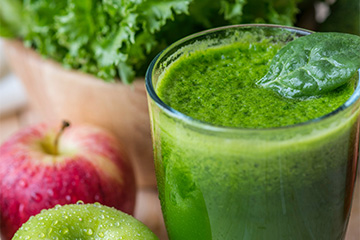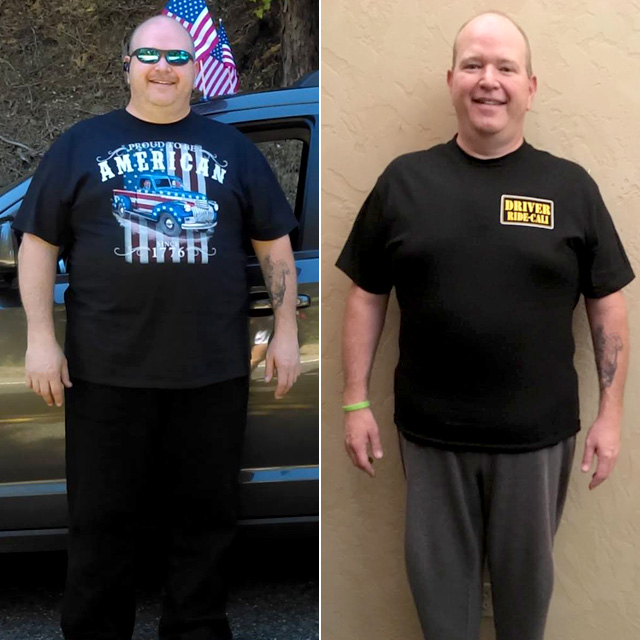 Written by Dr. Diane E. Clayton
Written by Dr. Diane E. Clayton
Believe it or not the average human contains 10 times more microbial cells than human cells. In fact our microbiome or our microbial “ecosystem” together with our DNA is what makes each of us unique. The only time we are microbe-free is during the 9 months we spend in the womb. During birth, after birth and during the first few years of life our resident microbes (comprising not just bacteria, but also viruses, fungi and protozoa) establish themselves in and on our body as a balanced and stable community, helping us grow and develop into healthy adults. Exactly how our resident microbes become established is determined both by our genetics and the environment we live in. So, when all goes well, we live in harmony with a stable community of microbes which confer upon us numerous health benefits.Read More
How to Fill the Gap with Fibre
 It seems that very often we are told about the importance of having fruits, vegetables and whole grains in a balanced diet to obtain needed vitamins and minerals. With all the benefits of these foods, we forget that these foods also contain fibre which is an important part of our everyday diet. Fibre can help you in multiple ways. It can help you with controlling your weight by making you feel full for a longer time and it can also help you with digestion, as it aids with the movement of food through your digestive system.1 Foods with higher fibre amounts may make you feel full longer as they are more satisfying.1 Consider what may make you feel full longer—drinking a glass of apple juice or eating an apple whole. A whole apple may make you full longer because of the fibre in the apple and in its skin. Also, with enough fluid, fibre can help glide food through your system more quickly, helping you with issues of constipation.1 Some types of fibre provide the benefits of lowering levels of blood sugar and blood glucose, which in turn, can lower your risk of getting diabetes or heart disease.2 Fibre is a powerhouse for providing benefits to your digestive and heart health and overall well-being.Read More
It seems that very often we are told about the importance of having fruits, vegetables and whole grains in a balanced diet to obtain needed vitamins and minerals. With all the benefits of these foods, we forget that these foods also contain fibre which is an important part of our everyday diet. Fibre can help you in multiple ways. It can help you with controlling your weight by making you feel full for a longer time and it can also help you with digestion, as it aids with the movement of food through your digestive system.1 Foods with higher fibre amounts may make you feel full longer as they are more satisfying.1 Consider what may make you feel full longer—drinking a glass of apple juice or eating an apple whole. A whole apple may make you full longer because of the fibre in the apple and in its skin. Also, with enough fluid, fibre can help glide food through your system more quickly, helping you with issues of constipation.1 Some types of fibre provide the benefits of lowering levels of blood sugar and blood glucose, which in turn, can lower your risk of getting diabetes or heart disease.2 Fibre is a powerhouse for providing benefits to your digestive and heart health and overall well-being.Read More
3 Things You Need to Know About Probiotics
 Bacteria—a term that often has a negative connotation. But there are good bacteria and bad bacteria and one of their happy homes include a place most don’t often think about—your gut! Your gut consists of your gastrointestinal tract and includes the organs starting from your mouth to your stomach, small and large intestines and colon. Read More
Bacteria—a term that often has a negative connotation. But there are good bacteria and bad bacteria and one of their happy homes include a place most don’t often think about—your gut! Your gut consists of your gastrointestinal tract and includes the organs starting from your mouth to your stomach, small and large intestines and colon. Read More
Jump Start your Weight Loss for Summer
 Cleanse, balance and energise – the healthy way!
Cleanse, balance and energise – the healthy way!
With summer just around the corner, many of us are scrambling to lose a couple of kilos or tone up to look and feel our best before bikini season arrives. And we know the perfect way to jump start your summer goals…Reset your body with NeoLife’s 3-Day Detox to help kick start your weight loss program into motion so you can spring into your summer body!Read More
Detox: What Is It and Why Is It Important?

Written by: John Miller, SAB Director
The NeoLife 3-Day Detox is a simple, easy and effective way to reset one of the most important aspects of your metabolism, the processes of elimination. The old adage “you are what you eat” has never been truer than it is at this very moment (nor more meaningful) for anyone embarking on a new journey toward optimal health, wellness and vitality.Read More
Super Easy Ways to Be Healthier at Work
Christmas feasts and holiday parties are here. We understand the last months of the year are known to test our commitment to our health. And since we spend a majority of our time at the office, I want to share these super easy ways to be healthier at work over the holidays…Read More
10 Signs Your Body Is Screaming For A Detox
There are so many reasons you should detox your body regularly. But don’t just take our word for it. Here are 10 signs your body is screaming for a detox…don’t you think you owe it to yourself to purify your body?Read More
NeoLife Athlete Spotlight: Aphiwe Dyantyi
 It’s being said that Aphiwe Dyantyi is the biggest secret in South African rugby today. This super-fast Lions winger is causing a stir game after game, as he speeds the Lions into a very promising 2018 season. We spoke to him to find out what fuels his rocket.
It’s being said that Aphiwe Dyantyi is the biggest secret in South African rugby today. This super-fast Lions winger is causing a stir game after game, as he speeds the Lions into a very promising 2018 season. We spoke to him to find out what fuels his rocket.
“What most people don’t know is that I’ve been taking NeoLife for a long time. My mum was a NeoLife Promoter when I was growing up. As a teenager, she used to give me NeoLife supplements. Read More
O-Mega Fun: Omega-3 101
 Whether you have seen the word ‘Omega-3’ at the grocery store or read about it in an article (such as this one!), this word may not be new to you. These fats are often referred to as PUFA’s and considered to be “good fats” with an array of health benefits and we are constantly reminded that they are good for our health. But what exactly are these fats and how do they contribute to our health?
Whether you have seen the word ‘Omega-3’ at the grocery store or read about it in an article (such as this one!), this word may not be new to you. These fats are often referred to as PUFA’s and considered to be “good fats” with an array of health benefits and we are constantly reminded that they are good for our health. But what exactly are these fats and how do they contribute to our health?
Omega-3 is the word given to a whole family of essential fats or “fatty acids” which serve important roles in our body. The parent omega-3 is called alpha-linolenic acid (ALA). ALA is an essential fatty acid for humans, meaning that we need to get it from our diet since we cannot make it in our bodies. If you can picture it, from the smallest level of a cell in our body, omega-3s are embedded in the cell membranes, outside and inside the cell, being particularly rich in the cells of our brain, eyes and heart.1 These fats play a structural role in our membranes and are used to provide important signal substances that balance and regulate our immune system. This in turn helps to ensure that our bodies inflammatory response remains controlled.1,2 Simply said omega-3s are absolutely vital to the structure and working of our bodies.Read More
90-Day Challenge Winner: Lyle Lost 23 Kilos
 Lost 23 kgs† using Weight Loss Pack
Lost 23 kgs† using Weight Loss Pack
“Before NeoLife I was irritable, had mood swings and focused on the negative. I didn’t feel good – I had no energy and I didn’t exercise.
Just one month on NeoLife, taking one NeoLifeShake, Pro Vitality and NeoLifeTea stick a day, I lost 9 kgs†, my energy was starting to return, I felt better and I switched to an organic diet.Read More


